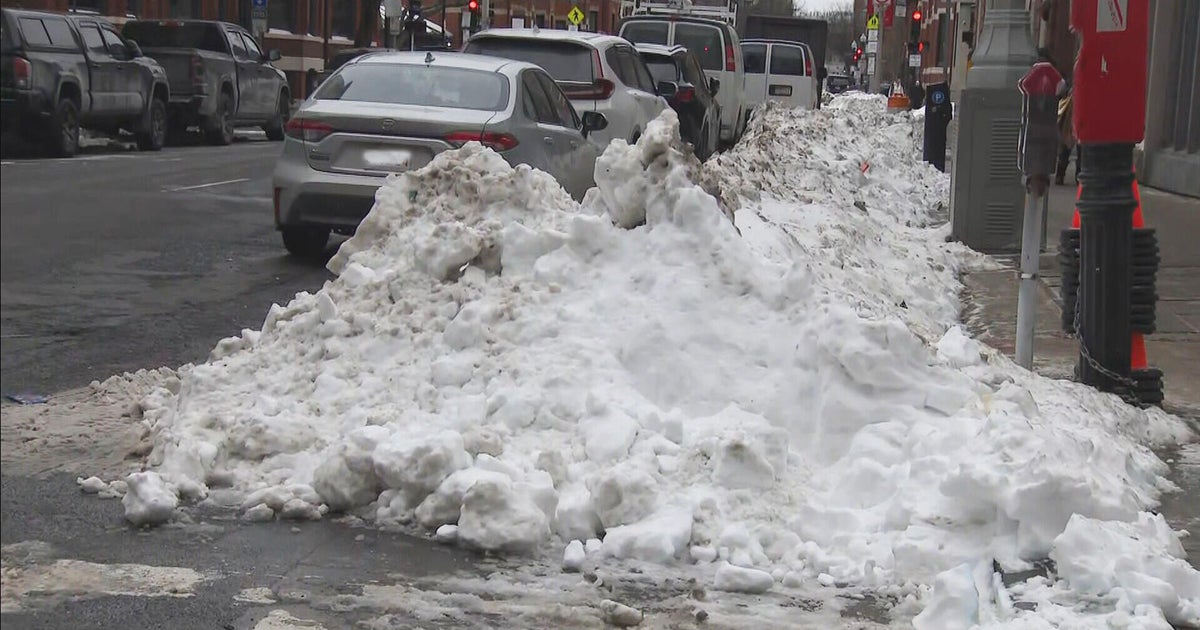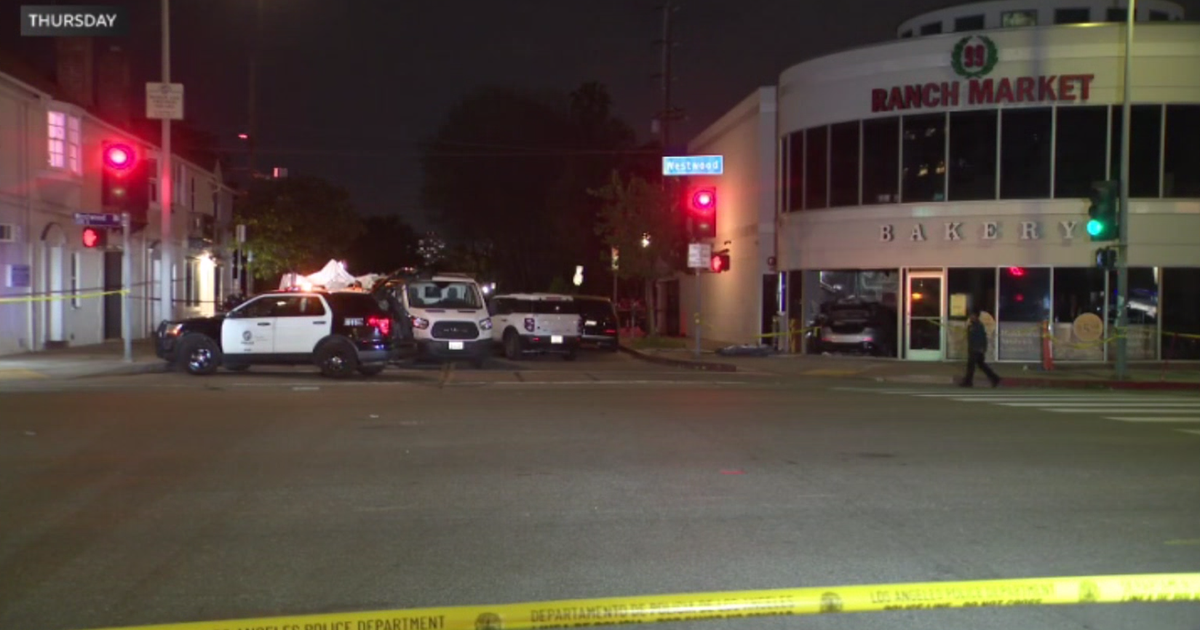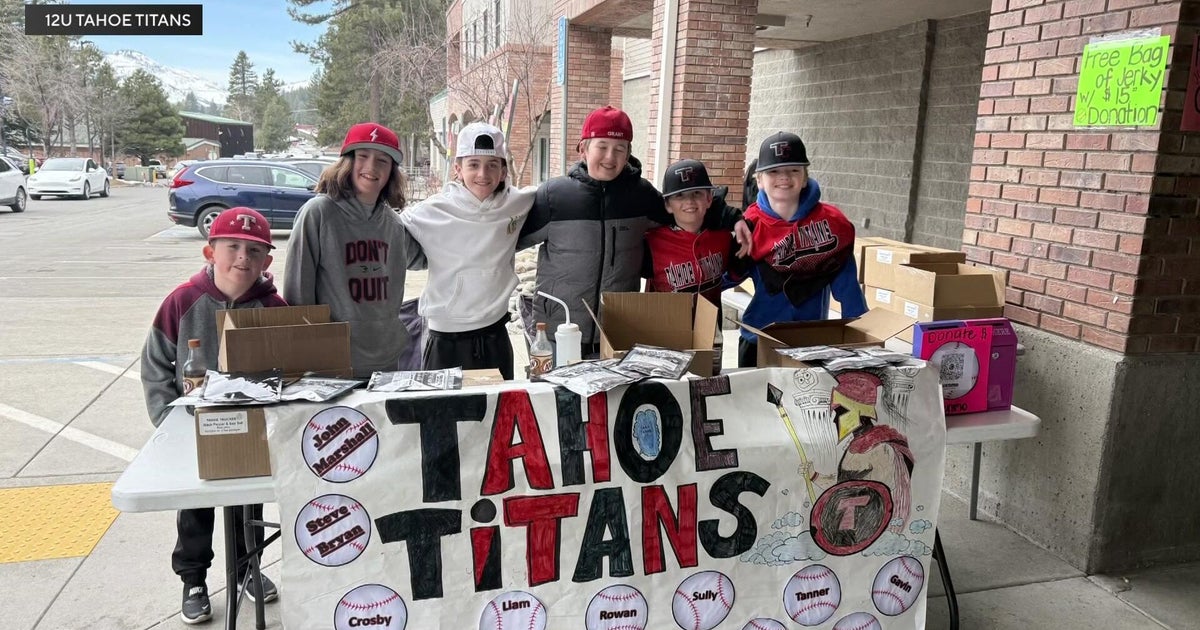Biden: 'Defending Freedom Will Have Costs;' Stocks Tumble, Grocery Store, Gas Prices Expected To Go Up
MIAMI (CBSMiami) - Now that Russia has invaded Ukraine, the aggression may mean higher prices at the grocery store and at the pump.
As it is, your 401K portfolio is taking a hit, as the stock market took a tumble Thursday.
As of 1 p.m., the Dow Jones Industrial Average had fallen by almost 700 points.
On February 22, President Biden spoke to the nation about his response to Russian aggression. He said, "As we respond... Defending freedom will have costs for us as well, here at home. We need to be honest about that."
Stocks tumbled worldwide Thursday as Russia's attack sent fear coursing through markets and upped the pressure on the high inflation squeezing the economy.
Bond yields fell as investors sought safety and the price of oil soared past $100 a barrel.
The conflict could send prices spiraling even higher at gasoline pumps and grocery stores everywhere.
"Inflation is likely to peak at higher levels that we were envisaging just a few days ago," said Ben May, director of global macro research at Oxford Economics.
Here's what could get more expensive around the world as a result:
Fuel
Global oil prices jumped above $105 per barrel Thursday, hitting their highest level since 2014. In the United States, oil prices approached $100 per barrel.
That will make it more expensive for drivers to fill up their tanks. In the United States, the average price of a gallon of gas rose to $3.54, up from $3.33 one month ago and $2.66 this time last year.
The Biden administration is exploring ways to blunt the rise in gas prices, though it's not clear how much can be done given high demand and tight supply.
The price of natural gas, which is used to heat homes and power industry, is also spiking. The benchmark price in Europe soared 29% to €114.65 ($127.80) per megawatt hour on Thursday, according to data from Independent Commodity Intelligence Services.
That's below the all-time high reached before Christmas, but will still hit pocketbooks if prices remain elevated. Bank of America previously estimated that European households would pay €650 ($724) more for energy this year, bringing average spending to €1,850 ($2,061).
Higher energy costs will raise expenses for companies, too. Jet fuel will get pricier for airlines, potentially triggering higher air fares, while manufacturers that use a lot of power, like steelmakers, will be squeezed. That could ripple across the economy.
Food
Global food prices were already near a 10-year high. Now, the Russia-Ukraine conflict could make matters worse.
Russia is the world's top exporter of wheat, while Ukraine is a significant exporter of both wheat and corn. They also export vegetable oils.
Wheat prices jumped to their highest level since 2012 on Thursday. The price of corn leaped, too. Soybeans, which often trade in line with corn, also pushed higher.
Egypt and Turkey are top buyers of Russian wheat. But they won't be the only ones affected if shipments are delayed or sanctions disrupt exports.
"Regardless of exactly where foodstuffs go, clearly if there's a shortage generally in the world, then the price is going to be driven up," May said.
Ukraine still needed to export 15 million metric tons of corn and between 5 million and 6 million metric tons of wheat this season, according to Rabobank commodities analyst Michael Magdovitz.
Now buyers like China are turning to Europe and the United States to fill the gap. If fighting drags on, limited supplies there could become even more constrained.
"If you have a protracted conflict, then you need to find a much greater amount," Magdovitz said.
Helima Croft, head of global commodity strategy at RBC Capital Markets, said the risk of greater food price inflation "appears acute" because Russia and Ukraine together account for a 25% of global wheat exports, while Ukraine alone accounts for 13% of corn exports.
And there's another potential blow to farmers: Russia is the largest producer of ammonium nitrate, a key component in fertilizer, RBC added.
US Agriculture Secretary Tom Vilsack said Thursday that European consumers could be more exposed to a jump in food prices than Americans.
(© Copyright 2022 CBS Broadcasting Inc. All Rights Reserved. The Associated Press and Cable News Network, Inc., a Time Warner Company, contributed to this report.)







